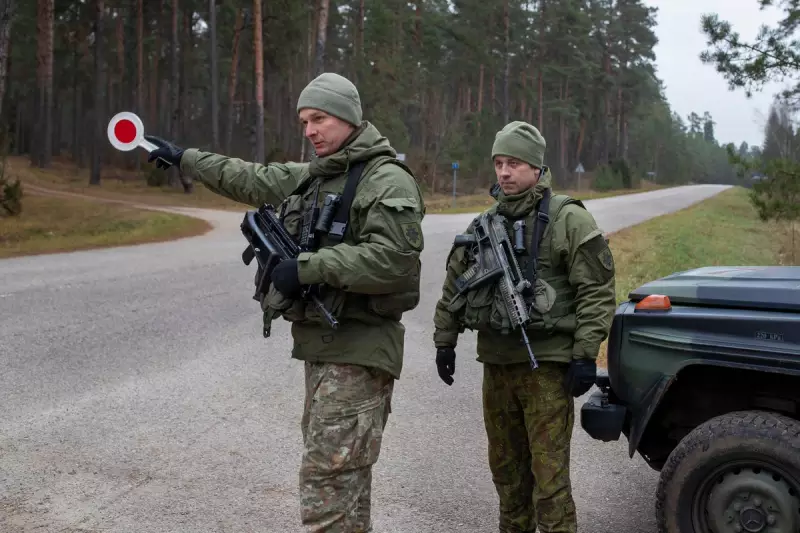
Belarus's authoritarian president, Alexander Lukashenko, has issued a stark threat to confiscate more than a thousand Lithuanian trucks currently stranded within his country's borders. This dramatic escalation comes in response to Lithuania's decision to close two key border crossings, a move Vilnius says was necessitated by repeated provocations.
The Border Closure and Its Causes
The crisis began when Lithuania, a member of both NATO and the European Union, shut its border crossings with Belarus on 29 October. The Lithuanian government attributed this decisive action to repeated incursions by meteorological balloons originating from Belarusian territory. These balloons, which were carrying smuggled cigarettes, caused significant and repeated disruptions to air traffic at Vilnius International Airport, the main airport in Lithuania's capital.
Lithuanian officials have framed these aerial disturbances as a calculated part of anti-Western activities by Belarus, a close ally of Russia, designed to undermine regional stability. The border is scheduled to remain closed until at least the end of November.
Lukashenko's Retaliation and Threats
In response, President Alexander Lukashenko has denounced Lithuania's border closure as a "mad scam" and an element of a "hybrid war" being waged against his nation. He has suggested that the responsibility for combating contraband smuggling lies with Vilnius itself.
The Belarusian authorities have refused to create a special corridor to allow the stranded Lithuanian vehicles to leave, instead demanding that Lithuania fully reopen the border. On Monday, 10 November 2025, Lukashenko stated that up to 1,200 Lithuanian trucks were stuck in Belarus and issued a direct warning.
"If they don't do it in the next few days, we will make a decision in accordance with our law," Lukashenko declared. "Up to the confiscation of the vehicles." He confirmed that the trucks had been moved to paid parking areas, stating, "They can't just loiter on the roads -- 1,100 or 1,200 big trucks."
Wider Consequences and Regional Tensions
The human and commercial impact is already being felt. Erlandas Mikėnas of the Lithuanian National Road Carriers’ Association reported that stranded drivers are growing increasingly "tired and angry," with concerns that some perishable cargo may spoil.
This bilateral dispute unfolds against a backdrop of heightened alert across Europe. NATO airspace has experienced an unprecedented scale of drone intrusions since September, incidents that some European officials interpret as Moscow testing the alliance's response capabilities.
Lukashenko also noted that Belarusian officials would raise the issue of the border closure in their contacts with Washington. This follows a phone conversation with US President Donald Trump in August, which had sparked speculation of a thaw in relations. A subsequent US-brokered deal in September led to the pardon of 52 political prisoners and an easing of sanctions on Belarus's national carrier, Belavia.
In a related development, Trump announced on Sunday the nomination of John Coale, who helped broker that deal, as the US special envoy to Belarus, tasked with negotiating the release of more prisoners.





